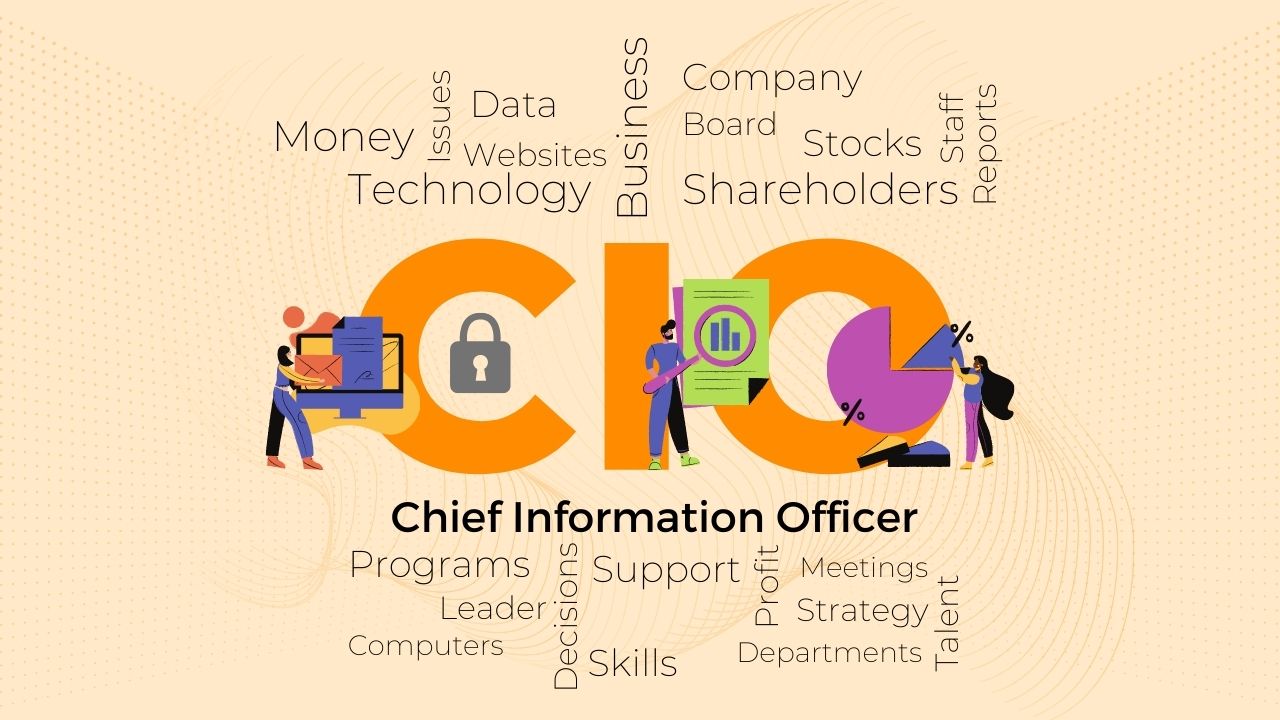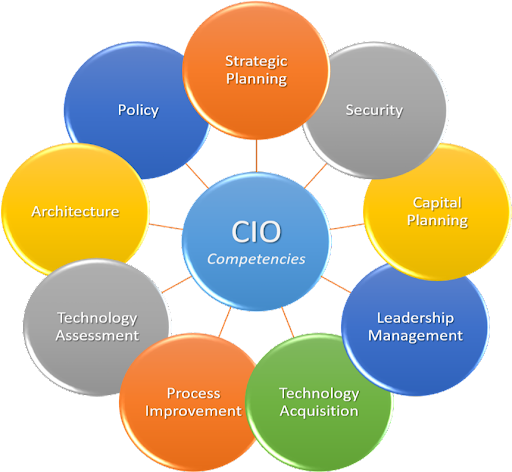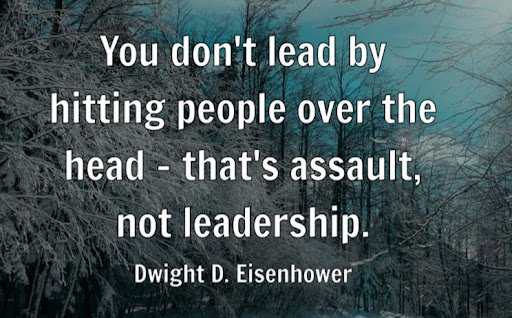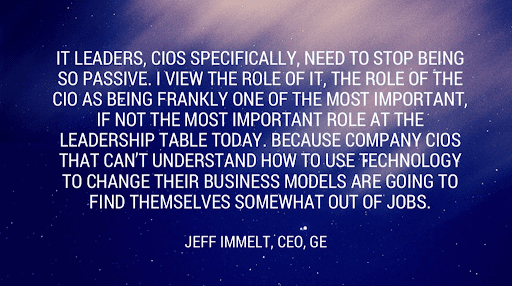The Empathetic CIO,
Are You?

The dictionary defined empathy as the ability to understand and share the feelings of another. Emotion researchers defined empathy as the ability to sense other people’s emotions, coupled with the ability to imagine what someone else might be thinking or feeling.
Do not confuse oneself with sympathy when we think of empathy. Sympathy involves understanding from your own perspective. Empathy involves putting yourself in the other person’s shoes and understanding WHY they may have these particular feelings. We can be empathic/empathetic but not sympathetic and vice versa. Empathy goes far beyond sympathy which might be considered feeling for someone. Empathy, instead, is feeling with that person through the use of imagination and visualisation.
For example, you smile and take the trouble to remember people’s names, that is empathy in action. Giving people your full attention in meetings, being curious about their lives and interests, and offering constructive feedback are all empathic behaviours, as well. Empathy is a skill which can be developed, as with most interpersonal skills, empathising (at some level) comes naturally to most people.
Never criticise a man until you’ve walked a mile in his moccasins.
~ American Indian proverb
During my sleepless nights in the early wee hours of the mornings, I would be reading (in the dark with my darling wife next to me in bed sound asleep) and recently stumbled upon this story:
Mercedes Benz: No More Satisfied Customers
Mercedes-Benz, the car manufacturer, is no longer interested in achieving customer satisfaction.
That does not mean that customer experience is not important to Mercedes. Quite the opposite. It means that customer experience is so important that satisfaction is not enough. Instead, the company wants its customers to feel delighted by their experience with Mercedes.
The company’s president and CEO believe that engaging Mercedes employees is key to achieving that. For example, a recent company poll found that 70% of employees had never driven a Mercedes. They are now being given the opportunity to do so, so that they can better empathise with customers, and therefore engage with them more effectively.
Mathematics is not my strong subject I excelled in but the education I received taught me to add at least 1+1 a keyword that combines with empathy is engagement as mentioned in the Mercedes story.
It is important to always remember, C-level executives, may it be the positions of CEO, CMO, CTO, COO, CISO and last but not least CIO, are not robots but humans. Using the CIO as the subject (see title of this article, the Empathetic CIO), it applies across the board of C-level suite and senior management that professional qualifications and work experiences are required traits for the respective C-level positions but not as important as EQ (emotional quotient) over IQ (intelligence quotient). Emotional intelligence (otherwise known as emotional quotient or EQ) is the ability to understand, use and manage your own emotions in positive ways to relieve stress, communicate effectively, empathise with others, overcome challenges and defuse conflict.
Types of Empathy
Psychologists have identified three types of empathy: cognitive, emotional and compassionate.
-
Cognitive empathy
is understanding someone’s thoughts and emotions, in a very rational, rather than emotional sense.
-
Emotional empathy
is also known as emotional contagion, and is ‘catching’ someone else’s feelings, so that you literally feel them too.
-
Compassionate empathy
is understanding someone’s feelings, and taking appropriate action to help.
I remember watching Elon Musk interviewing Jack Ma (yes, that fellow who insulted the China Government officials and since then his presence has gone off the world radar), with Elon (the arrogant braggart) smirking and rolling his eyes when Jack stated that he rated EQ over IQ.
Regardless if one is a CIO or CEO or a Red Indian Chief, it is not always easy or even possible, to empathise with others but armed with good people skills and some imagination, we can work towards more empathetic feelings. Research has suggested that individuals who can empathise enjoy better relationships with others and greater well-being through life.
Recently I had a discussion with CKH, a former CIO of a Malaysian conglomerate who later in his career was appointed CEO of an IT subsidiary company of the conglomerate group. He has since retired from the group and formed his own DX/AI company of his own and thriving successfully today. He is an experienced and knowledgeable IT veteran of the Malaysian IT industry. He has been in numerous battles with divisional, subsidiary and senior management chieftains. CKH shared that in managing his stakeholders, managing them with patience, never taking the dagger-stabbing feedback personally but constructively, maintaining Zen-like state of mind and composure. Always one must ensure to have the last say or parting words, with wit, facts and logical solutions, to the challenges at hand. Of course, in most cases, we do not have the appropriate answers or solutions so commit and assure a solution will be presented at the earliest. If I read CKH’s professional wisdom correctly, patience is a key attribute to master. We have heard this quote numerous times, “you can wait until the cows come home”. Well, CKH upped the ante of the quote to “you can wait for the 2nd generation cows to come home!”.
Majority of such conglomerates operate no different to the China of old (days). The top head honchos think they are in control but it is the territorial chieftains who are. Any C-level hero, trying to be a top gun as the galiant champion of business transformation driven by technology, will experience a wake-up call of his/her professional lifetime.
It is not mission impossible but I-m-possible with lots of blood (loss, figure of speech), sweat and tears, not to mention stress, frustrations, ageing (beyond one’s real age where a 40-year-old looks like 60) and last but not least, health. A good number suffered burnouts, depressions and illnesses one never expected to have popped out in one’s full medical examination report.
Stress can play a part in problems such as headaches, high blood pressure, heart problems, diabetes, skin conditions, asthma, arthritis, depression and anxiety. The Occupational Safety and Health Administration (OSHA) declared stress a hazard of the workplace.
I recommend the reader(s) to watch an old but excellent British TV comedy series called Yes, Minister! and Yes, Prime Minister!. The main character started off as a Minister in the 1st series. The government servant chief ran rings around the Minister. The sequel series came about with the Minister becoming the Prime Minister, still being manipulated and rings run around him by the Head of the Civil Service.
For the Salary Men and Women, the nine2five employed people, a good number aspire to hold at least one C-level position, may it be CEO, CIO, COO, CTO, CMO, CPO, CISO etc. Achieving such a status is not impossible. The quickest and shortest route to achieve this dream is to start your own business/company, self-appointing the founder/business owner as MD, ED, CEO, all in one. One’s dream has been realised.
C-attributes
Sustaining and maintaining the position of CIO is the C in CIO is not only mean Chief but the hot-seater must have the following C-attributes to be:

- Confident
- Committed
- Cock-sure
- Courageous
- Clever
- Credible
- Cunning but not Conniving
- Caring
- Communicator
- Charismatic
…and many more C traits the reader can think of.
CIOs are managing very high-strung egotistical stakeholders which majority of them (not all) are sensitive, thin/thick-skinned individuals who are on cloud9 in a sheltered world who only know what they know (but do not know what CIOs know) and the CIO is shot down many times by ignorami senior managements and most likely is due to the CIO’s fault of being a poor communicator.
IT Heads manage IT departments and day-to-day IT operations. CIOs manage the organisation’s stakeholders and senior management, and also manage IT Heads and their respective teams. Realistically the I in CIO can be a CIO who is intelligent/intellectual or an idiotic one.
When promoting an IT Head to be CIO, he or she needs to be challenged with this question: Are you tough enough to do the job of a CIO? All C-levels are leaders in their respective business environments.
Leaders must muster the courage to do the tough things, make difficult decisions. Leaders must know when tough is good and when it is not. Leaders must know what to do to keep one’s sense of balance during challenging times.
When making tough decisions, implementing tough actions or giving tough feedback, there is one overriding rule to remember:
Act tough but do not be tough and do not be personal but professional.
As General Dwight D. Eisenhower said:

The Empathetic CIO
Be an empathetic CIO by applying the following during tough and challenging times:
-
Turn the spotlight on.
First thing to do is to Identify the problem and bring it to attention which will help in the clarification of the real issues and not the symptoms.
-
Positive Thinking.
One’s attitude is key. Be constructive and not destructive. Find a solution that will meet the objectives. Do not ever say, I don’t know else your stakeholders will also not know why you are holding the position of CIO if you are clueless.
-
Do your homework, always!
Consider as many alternatives as possible before narrowing down to your final decision. Even in a business turndown, avoid the tendency to hip-shoot a solution, that is, react without careful consideration of one’s words or actions. Your current strategy will be based on a set of assumptions. Examine the assumptions and make changes accordingly, and then determine if the strategy needs changing.
-
Rally support.
Communicate, communicate, communicate, to all who are affected, customers and/or employees. Focus on how and what you can affect on performance, productivity, revenues, costs, etc.
-
Brace yourself.
Recognise that tough actions will usually be unpopular, at least in the short run. Prepare one self mentally for the storm of protest. You will face a lot of negative energy in the workplace at such times, and that can be exhausting. It is important to be as physically fit as possible, let alone mentally.
-
Look for the silver lining.
Keep morale up by focusing on areas of improvements not possible during busier times. Education and development can flourish and better prepare everyone for the next upturn in the business.
 Ask three questions. When you are struggling with a tough decision, the following three questions bring things into focus. Am I doing the right thing? Am I doing it for the right reasons? Am I doing it in the right way? Answer yes to all, and your direction is clear. Any “no” answer should cause you to rethink and adjust accordingly.
Ask three questions. When you are struggling with a tough decision, the following three questions bring things into focus. Am I doing the right thing? Am I doing it for the right reasons? Am I doing it in the right way? Answer yes to all, and your direction is clear. Any “no” answer should cause you to rethink and adjust accordingly.
To all aspiring CIOs, be tough but empathetic. Be the tough empathetic Machiavellian CIO.
Last but not least, CIOs need to be IT Evangelists who must learn to SELL and speak the language of business.
Catch When Expert Meets Expert by Eugene Chung articles every bi-weekly Tuesday. Don’t forget to subscribe to stay connected. You are also encouraged to ask questions and seek advice from him.
Share this post
Related Posts

Cybersecurity: Achieving the ‘Hole-in-One’ of Digital Defence
- 07 Nov 2023
- By:Bernadetta Septarini
- Category: When Experts Meet Experts (WEME)
Discover the connection between cybersecurity and sports with Tony Smith, Regional VP at WithSecure. Let’s achieve the ‘Hole-in-One’ of Digital Defense.

Beware of Scare Software aka Scareware
- 21 Nov 2022
- By:Eugene Chung
- Category: When Experts Meet Experts (WEME)
What is Scare Software or Scareware? Learn more about this Social Engineering technique that aimed to scare the victim with ArmourZero mentor Eugene Chung.

Job Hunting Tips for IT Graduates
- 14 Nov 2022
- By:Ts. Saiful Bakhtiar Osman
- Category: When Experts Meet Experts (WEME)
The job market is tough and competitive. Learn some tips on how to do job hunting for IT graduates from ArmourZero’s mentor and expert Ts. Saiful Bakhtiar.

Tips to Successfully Sell a Credible Cybersecurity Solution
- 07 Nov 2022
- By:Eugene Chung
- Category: When Experts Meet Experts (WEME)
How do Cybersecurity sales convince prospects to trust their services and/or products? Learn more about it from ArmourZero’s mentor and expert Eugene Chung.

